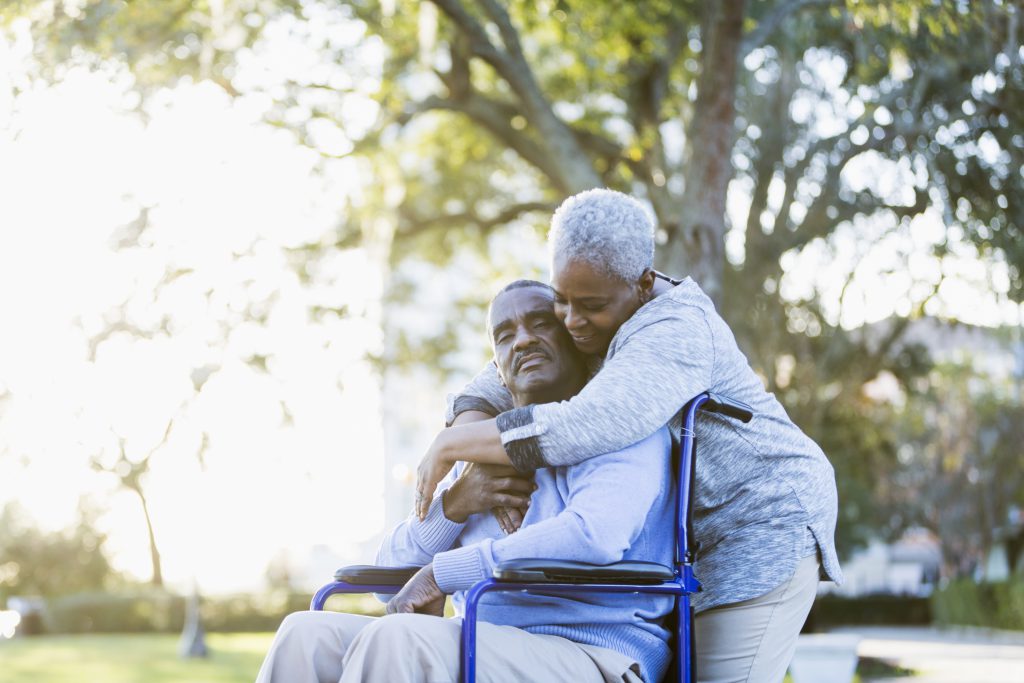Caring for Others Can Bring Benefits

Taking care of another person can be both incredibly draining and amazingly rewarding. Most research on caregiving has focused on the benefits to the person receiving care, but an emerging body of research suggests that – under the right circumstances — providing support also benefits caregivers.
There’s often an assumption that the person who receives care reaps the benefits at the expense of the person providing care. Previous research has shown that caregiving is often associated with increased stress – both emotional and financial.
However, University of Pittsburgh psychological scientists Tristen K. Inagaki and Edward Orehek have identified two factors that can determine whether providing support might also benefit the caregiver as well: When providing care is a choice and when support is perceived to be effective.
In many situations, caregivers feel forced to care for loved ones out of obligation or necessity, and their efforts feel ineffective and hopeless. A report from the National Academies of Science, Engineering, and Medicine warned, “If their needs are not recognized and addressed, family caregivers risk burnout from the prolonged distress and physical demands of caregiving, and the nation will bear the costs.”
But in an article published in Current Directions in Psychological Science, Inagaki and Orehek point to a growing body of evidence that providing support can also be beneficial, leading to reduced stress, increased happiness, and increased sense of social connectedness.
“Consider a case in which you decide that you would like to do something for your partner after a long day at work. You know that she enjoys a pasta dish that you cook, and you decide to make it for her,” Inagaki and Orehek write. “Most social-support research has focused on the potential benefits for your partner while overlooking the benefits to you, the support giver. However, by doing something for someone else, you may also benefit yourself.”
Infants require years of dedicated nurturing, which has led humans to develop a natural capacity to care for others – including friends, romantic partners, and family members. Thus, it makes sense that humans have also developed mechanisms to ensure that caregiving behaviors are also rewarding and pleasurable.
For example, research has shown that giving a gift to someone else has been linked to an increased self-esteem, self-worth, and feelings of social connection with the recipient. Even among animals, caretaking behaviors, such as grooming, can be linked to lower stress levels and fewer anxiety-related behaviors.
In an experiment conducted by Inagaki and Naomi Eisenberger (University of California, Los Angeles), participants wrote either a supportive note to a friend in need or wrote about a neutral topic. Those who thought they were helping out a friend benefited by a reduction in stress. Consistent with these findings, an intervention outside the lab showed that being randomly assigned to give money to others (versus spending money on oneself) led to lower resting blood pressure.
Recent neuroimaging experiments demonstrate that specific brain regions are more active during caregiving. In one experiment, participants held a romantic partner’s arm while he endured a series of uncomfortable shocks. Those who provided emotional support had increased activity in both the ventral striatum and septal area, neural regions associated with pleasure and reward. Other neuroimaging experiments have shown increased activity in the ventral striatum when people give money away to charity or friends compared to winning money for themselves.
“In addition to the short-term benefits reviewed here, we expect benefits of giving support to extend to long-term well-being,” Inagaki and Orehek write. “Indeed, large-scale analyses of human social ties have demonstrated remarkable health-promotion effects: Parenthood, marriage, and social integration are all robustly associated with greater longevity.”
Previous research has shown a strong link between social support and longevity, and Inagaki and Orehek are interested in exploring whether caregiving behavior might also impact longevity.
“To gain a richer understanding of the association between social ties and well-being, an important future research direction is to not only consider the support receiver but also emphasize the support provider,” they conclude.
Reference
Inagaki, T. K., & Orehek, E. (2017). On the Benefits of Giving Social Support: When, Why, and How Support Providers Gain by Caring for Others. Current Directions in Psychological Science, 26(2), 109-113. doi: 10.1177/0963721416686212





Comments
We used this article in my english class
how is can we link caregiving and physical health
APS regularly opens certain online articles for discussion on our website. Effective February 2021, you must be a logged-in APS member to post comments. By posting a comment, you agree to our Community Guidelines and the display of your profile information, including your name and affiliation. Any opinions, findings, conclusions, or recommendations present in article comments are those of the writers and do not necessarily reflect the views of APS or the article’s author. For more information, please see our Community Guidelines.
Please login with your APS account to comment.